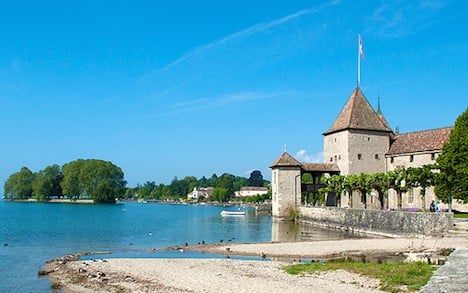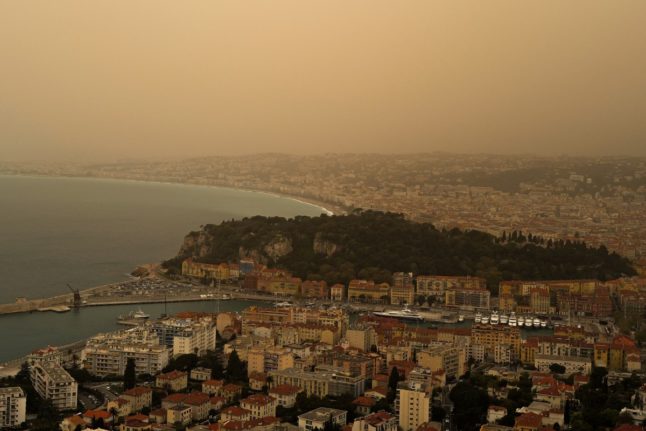Cantonal police confirmed the man died shortly before 7pm after getting into difficulties in the lake.
He sank in the water around 15 metres from shore, a police spokesman told the ATS news agency.
Other bathers retrieved him from the water and brought him to the beach.
But efforts to resuscitate the victim were unsuccessful.
A witness told the 20 Minutes newspaper that the man was a French resident who had come to pass the afternoon on the lake.
According to the witness, the man, a muslim, suffered a malaise because of the heat while he was respecting the fast of Ramadan.
The period of fasting is an annual month-long period, begun this year on June 18th, that is observed by adult Muslims worldwide.
The traditional observance requires adherents to fast from dawn to sunset.
Temperatures in the Lake Geneva area rose to as high as 28 degrees on Sunday, drawing crowds to waterfront beaches.
But MeteoSwiss, the national weather office, is forecasting warmer temperatures this week when another heatwave is set to roll across Switzerland.
The mercury is expected on Wednesday to hit 35 degrees in Geneva and 34 degrees in Sion (in the canton of Valais) and in Basel.
Temperatures are anticipated to reach well above 30 degrees in most of the country for at least three days, with a high of 36 degrees predicted for Sion on Thursday.




 Please whitelist us to continue reading.
Please whitelist us to continue reading.
Member comments